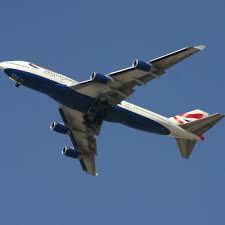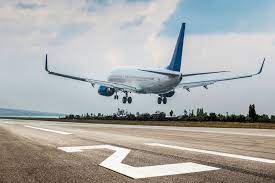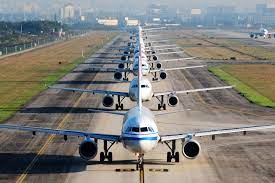Travel industry leaders are hopeful the Biden administration will finally end a major COVID-era hassle for Americans traveling abroad and for international travelers who want to visit the United States: A negative COVID test within 24 hours of boarding a U.S.-bound flight.
That requirement has been in effect since late last year, when the Biden administration ended a ban on travel into the United States from a variety of countries and replaced it with the negative-test requirement. At first, the rule said travelers could show a negative test within 72 hours of their departure time, but that was tightened to 24 hours. While it’s a worry for Americans traveling abroad, who might get stuck overseas while recovering from COVID, it’s a bigger barrier for foreigners who want to come to the United States: Booking a trip means risking a wrecked itinerary if a positive COVID test prevents them from even arriving.
The skies may soon brighten. “We are optimistic this requirement will be lifted by summer, so we can get the benefit of all the international in-bound travelers,” Christine Duffy, chair of the U.S. Travel Association and president of Carnival Cruise Lines, told at the recent Milken Institute annual conference in Beverly Hills. “The Commerce Dept. has been working closely with the travel industry and the administration is aware of the issue.”
More than 250 travel-related organizations, including Delta, United, American and Southwest airlines and the Hilton, Hyatt, Marriott, Omni and Choice hotel chains, sent a letter to the White House on May 5 asking the government “to expeditiously terminate the inbound testing requirement for vaccinated air travelers.” The letter pointed out that Germany, Canada, the United Kingdom and other countries no longer test incoming passengers for Covid, and that many American workers are returning to normal routines—so why not international travel?
The travel industry may have suffered more than any other industry from COVID lockdowns, exposure fears and rules meant to keep travelers safe. That includes billions of dollars in lost business from foreign travelers who aren’t coming. The U.S. Travel Association says overseas travel to the United States in 2021 was 77% below 2019 levels. Those figures don’t include Canada and Mexico, though inbound travel from those neighboring countries plunged as well. Overall, those declines add up to about $160 billion in lost revenue annually.
Anecdotal evidence suggests the pre-departure testing requirement imposed last year heavily influences travel decisions. Industry officials say that during the winter, for instance, Caribbean bookings for U.S. travelers were much stronger in places such as the U.S. Virgin Islands and Puerto Rico where Americans don’t need a pre-departure test to return home, than in similar locales where a test is required. “When those restrictions came in place, all those international islands, the Caymans, Antigua, they didn’t get any travelers,” Richard Stockton, CEO of Braemer Hotels & Resorts, said at the Milken Conference. “They got concentrated into Key West, Puerto Rico, the U.S. Virgin Islands. Those resorts went through the roof while the others suffered.”
There are also inconsistencies in the testing policy. People traveling to the U.S. from Mexico or Canada by land don’t need to show a negative COVID test, for example, while air travelers do.
Travel industry officials say Commerce Sec. Gina Raimondo—whose job is to advocate for American businesses—is pushing for an end to the testing rule. But Biden administration COVID policy is driven by the White House, where Ashish Jha recently replaced Jeff Zients as the national COVID response coordinator. Jha, presumably, would need to sign off on the withdrawal of the COVID testing rule, with Biden’s approval. So far, he hasn’t.
Jha faces other pressing matters. The Biden administration suffered a stinging rebuke in April when a federal judge struck down the federal masking requirement on airplanes and mass transit systems. The Justice Dept. is appealing that ruling, though it seems more interested in protecting federal powers in future emergencies than in reinstating the mask rule. The Centers for Disease Control and Prevention, meanwhile, still recommends travelers mask up on airplanes and mass transit. Jha may feel the Covid testing rule for inbound travelers is now a necessary offset to the protection lost from the end of the mask mandate.
The counterargument is that the end of the masking requirement makes the COVID testing requirement for inbound travelers outdated. Roughly 2 million people per day now fly domestically without a mask requirement, while the number of international travelers who must pass a COVID test is about one-tenth as many. Vaccines and boosters, meanwhile, have slashed the odds of serious illness for those who get COVID.
“There’s no reason for a pre-departure testing requirement,” says Tori Barnes, executive vice president for public affairs and policy as the U.S. Travel Association. “We need to be globally competitive as a country. All other countries moving toward an endemic stage.”
The Biden administration seems to be lurching in that direction. Dr. Anthony Fauci, the government’s top infectious disease expert, said on April 26 that the United States was “out of the pandemic phase.” But a day later, he modified that characterization, saying the U.S. is out of the “acute component” of the pandemic stage. Maybe by summer, he’ll be willing to say the pandemic is irrevocably over.
Post time: May-06-2022







